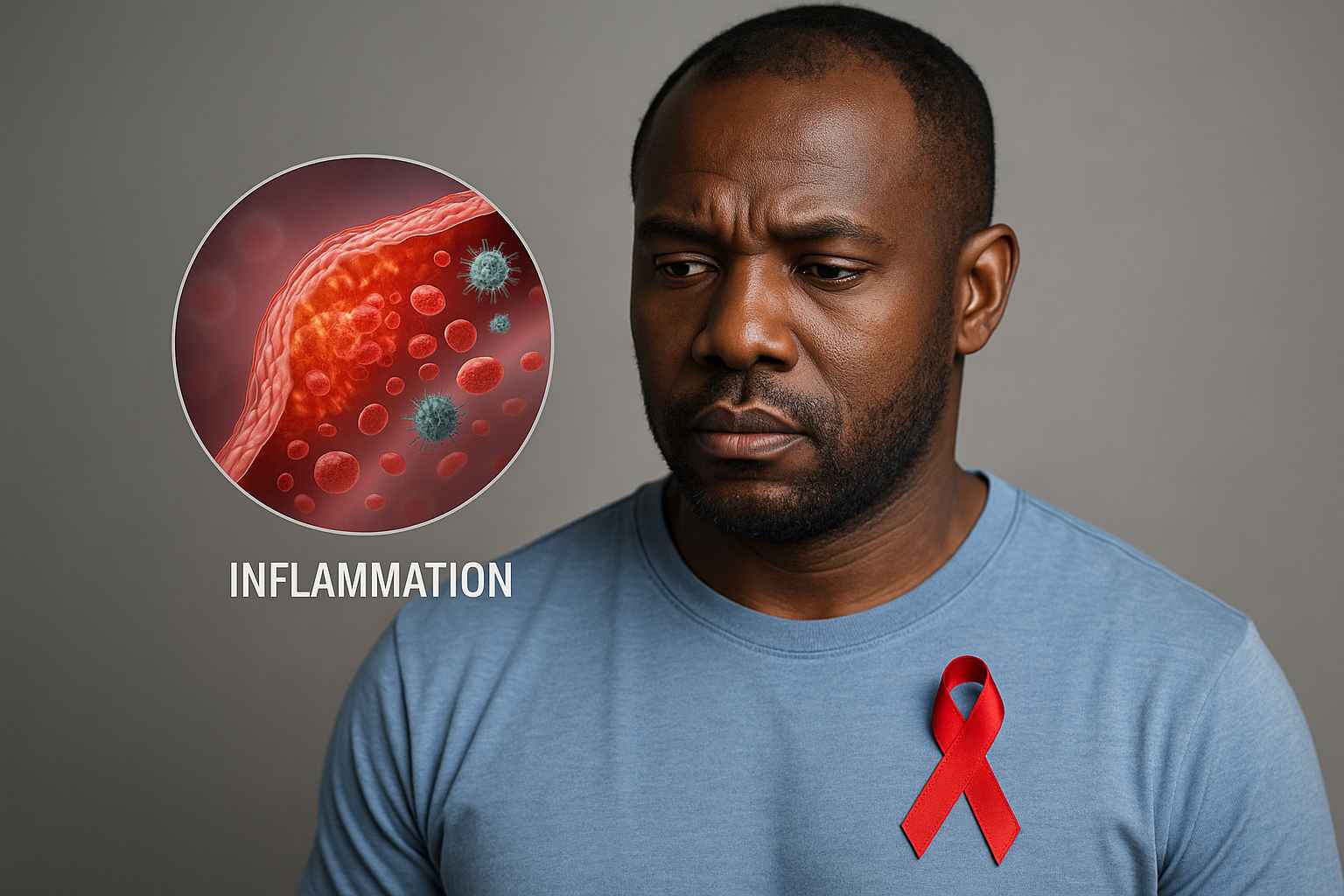Table of Contents
- Introduction
- Why HIV Causes Persistent Inflammation
- Health Impacts of Chronic Inflammation in HIV
- Management Strategies
- FAQs
Introduction
Understanding “Inflammation and HIV” is vital as inflammation plays a central role in how HIV affects overall health. Beyond weakening the immune system, HIV triggers ongoing immune activation that contributes to aging-related diseases and reduces quality of life.
Why HIV Causes Persistent Inflammation
- Ongoing immune response: HIV infection continually activates immune cells, releasing markers like IL‑6, TNF‑α, and CRP—even when viral levels are low.
- Gut barrier damage: HIV disrupts gut lining early on, allowing bacterial components to leak into circulation and fuel inflammation.
- Residual viral activity: Even dormant HIV DNA can produce RNA, promoting immune activation and inflammation.
- Co-infections and microbial shifts: Chronic coinfections (e.g., CMV, hepatitis) and gut microbiome changes further stimulate inflammatory responses.
Health Impacts of Chronic Inflammation in HIV
Chronic inflammation in people with HIV, even on ART, is linked to:
- Cardiovascular disease: Inflammation damages blood vessels, increasing risk of heart disease.
- Non-AIDS cancers and neurocognitive decline: Elevated inflammatory markers correlate with greater risk of cancer and cognitive issues.
- Bone, kidney, liver issues: Persistent inflammation contributes to osteoporosis, renal impairment, and liver damage.
- Accelerated aging (“inflammaging”): Systemic immune activation is associated with early onset of age-related conditions.
Management Strategies
1. Early & Consistent ART
Starting ART early helps reduce immune activation markers, though inflammation may not fully normalize.
2. Lifestyle Modifications
Healthy behaviors—like quitting smoking, balanced diet, exercise, and moderating alcohol—can help ease inflammation.
3. Targeted Anti-Inflammatory Interventions
- Anti-inflammatory medications: Drugs like maraviroc or hydroxychloroquine are under study for their potential to reduce inflammation.
- Gut health support: Probiotics and dietary strategies targeting the microbiome may reduce gut-driven inflammation.
- Emerging therapies: Agents targeting inflammasome activation (like caspase-1 inhibitors) show promise in early research.
FAQs
Q: Can inflammation fully resolve after ART?
A: Inflammation often decreases with ART, but many markers remain elevated. Early treatment reduces this risk.
Q: Are there approved anti-inflammatory treatments for HIV?
A: Not yet; clinical trials are exploring drug repurposing and novel agents to manage inflammation.
Q: How important is lifestyle in managing HIV-related inflammation?
A: Extremely important—healthy lifestyle changes complement ART and may significantly reduce inflammation.
Q: Why does gut health matter?
A: Repairing the gut lining helps prevent bacterial leakage into the bloodstream, reducing systemic immune activation.
Q: Is inflammation the same as viral load?
A: No. Even if HIV is suppressed to undetectable levels, chronic inflammation can persist independently.
Disclaimer
This article was written with the assistance of AI. Although we aim for accuracy, it may contain errors. Consult a healthcare provider for personalized medical advice.




